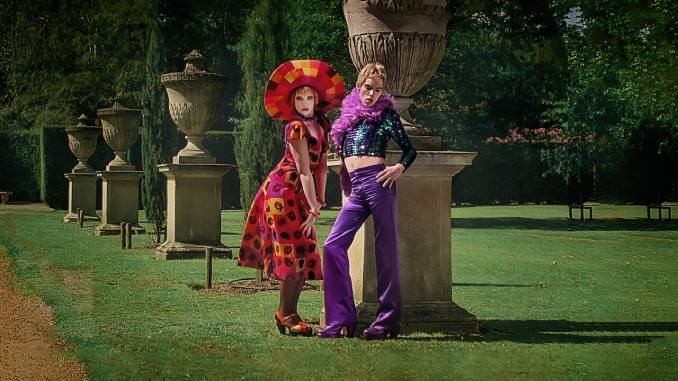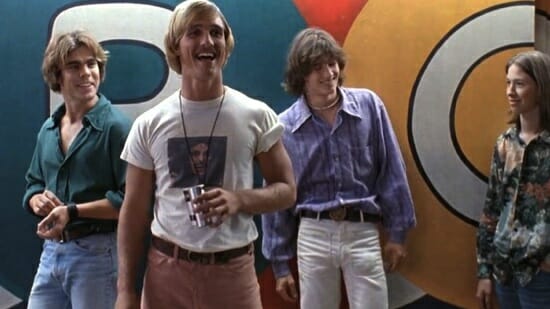Priscilla and the Art of Musical Biopics Being Denied Music Rights

Who gets the right to tell their version of a famous musician’s story? Even the biggest of stars are real people who deserve robust and ethical treatment from filmmakers, yes, but surely it is an artist’s right to extrapolate beyond the authorized, approved version of events? Sofia Coppola’s Priscilla sidelines the King of Rock ‘n’ Roll’s perspective to illustrate just how deeply Elvis sidelined his younger wife. The change in perspective reveals infinitely more than the approved Elvis narrative will allow. How did those around Elvis see him? How did he see us? But there’s a difference between who gets the right to tell their story, and who is allowed the rights—that is, the rights to an artist’s music. Recording labels and musicians’ estates have to formally approve or deny access to filmmakers for every song they use, and if you’re making an especially audacious, crass or even misguided story about an artist, their label or family can kill your biopic dead by denying you their music.
Except, sometimes they don’t die, they just soldier on. The canon is filled with movies that were denied the rights to songs or whole discographies, and were forced to adapt their production into something that’s sometimes better, sometimes worse, but always marked by a unique absence.
In celebration of Priscilla, here are 10 movies that were denied use of a musician’s music:
All the Unproduced Biopics
Before we drag up the kneecapped biopics and legally contested art films, first we must sing an ode to everyone that threw in the towel before the cameras could roll. After directing the Opening Ceremony of the London Olympic Games in 2012, Danny Boyle wanted to stage a big-scale David Bowie biopic—but was bereaved after his official request was declined. The Weinstein Company wanted to make a Bob Marley biopic circa 2008, but the Marley estate declined, as they were already backing a documentary that then had Martin Scorsese attached to direct (Marley would go on to be directed by Kevin Macdonald). Kevin Smith ended up shooting a week’s worth of documentary footage about Prince in the early 2000s, but the film was never released (there is, as there always is, a great Kevin Smith story about it). These films likely wouldn’t have been tremendously good but, crucially, we will never know for sure—their ambitions were effectively thwarted by the music rights being withheld.
Aaliyah: The Princess of R&B
If you hear that Lifetime is trying to make a movie about your tragically deceased relative, you better slam that veto button post-haste. That’s exactly what Barry and Jomo Hankerson did—they ran the record label that owned Aaliyah’s masters, and are also the young R&B star’s uncle and cousin. Lifetime pushed ahead anyway, but the complicated and controversial handling of sensitive material by an artistically unsophisticated network led to original lead Zendaya dropping out of the project. The finished film was considered by both critics and audiences to be a bit of a disaster, not least because, without having access to Aaliyah’s music, Lifetime had to record new covers of the few songs that they included.
Jimi: All Is by My Side
Here’s the formula for making a music biopic with no authorized music: Set it in their early years before they made all their iconic music. It keeps the production design budget down (small, murky gigs are cheaper than sold-out concert venues), the pressure to match the actor with their iconic later-in-life image is lessened, and you’ve got a handy excuse for not using any of their hottest hits—they haven’t made them yet! It’s convenient, but staggeringly uninteresting: The artists themselves don’t do a lot to interest a wider audience. Writer John Ridley (American Crime, 12 Years a Slave) also directed this alternative take on Hendrix to muted response—even more muted than estate-authorized biopics usually get.
Superstar: The Karen Carpenter Story
Before Priscilla, Todd Haynes had the honor of making the best film about a musician that was denied using their music, and is still the best one that can’t be watched in a quality higher than 480p. Crucially, Superstar—a condensed, experimental account of Karen Carpenter’s fatal struggle with anorexia, acted out nearly entirely with Barbie dolls—did include The Carpenters’ hit songs without authorization. After losing a copyright infringement lawsuit filed by Richard Carpenter in 1990, the film all but disappeared—Richard clearly did not predict the advent of the Internet. Today, in its grainy, bootlegged strangeness, Superstar stands as a defiant testament to the estate-approved version of an artist’s legacy.
-

-

-

-

-

-

-

-

-

-

-

-

-

-

-

-

-

-

-

-

-

-

-

-

-

-

-

-

-

-

-

-

-

-

-

-

-

-

-

-











































